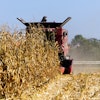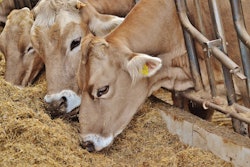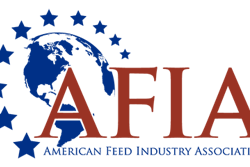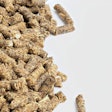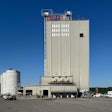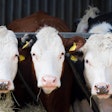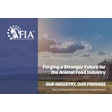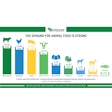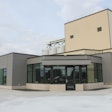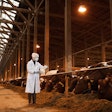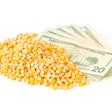
The American Feed Industry Association hosted its Purchasing and Ingredient Suppliers Conference (PISC) Webinar Series last week.
The five-day event offered attendees valuable insights on what is happening in the animal food industry and its outlook, in light of the current events surrounding the coronavirus pandemic.
“Since our PISC attendees missed hearing important, new information on many hot-button issues in the animal food industry this spring, we were thrilled to be able to offer the same opportunity, from the comfort and convenience of their own desks,” says Veronica Rovelli, AFIA’s senior director of meetings and events.
The webinar series featured new learnings in biosecurity, the current state-of-play in politics and expert analysis of how COVID-19 is impacting the feed industry, the crop and livestock markets and consumer demand for animal protein products.
Constance Cullman, AFIA’s president and CEO, shared a preview of what is happening in Washington, D.C., and what the industry can expect to see with the upcoming presidential election. She also focused on the importance of advocating in this new policy environment.
“Have conversations with both parties – they need to understand the importance of what we do,” Cullman says. Increasing lawmakers’ understanding of how the industry operates has been critical in recent months, she explained, particularly in keeping this essential industry open for business amid state shutdown orders.
Jayson Lusk, Ph.D., distinguished professor and head of the agricultural economics department at Purdue University, spoke on how the COVID-19 pandemic is impacting consumers’ shopping behaviors and what they will demand in the future.
“We will see an accelerated trend to e-grocery, more food-at-home will bypass the traditional grocery stores in favor of Amazon, Walmart and others delivering food straight to doorsteps, a rising interest in local food and direct farm delivery and more ghost kitchens,” Lusk says. The reallocation of food from the food-service industry to homes will continue to challenge the agriculture industry, as it shifts resources to keep the food supply stable.
Cassandra Jones, Ph.D., undergraduate research coordinator in Kansas State University’s Department of Animal Sciences and Industry, discussed the latest research on how the African swine fever virus spreads, particularly focusing on new research her team is conducting in Vietnam on how the virus can spread from farm to feed mill to farm.
“Like COVID-19, the virus is spreading faster than the speed of research,” Jones says. “But some vaccines on the horizon are looking promising, while not commercially available yet.”
Other speakers included Joseph Kerns, president of Kerns and Associates, who discussed the current economics of the animal agriculture industry, and Richard Brock, of Brock Associates, who provided a commodity outlook.
The recorded proceedings are available for purchase by contacting Veronica Rovelli, AFIA’s senior director of meetings and events. Next year’s conference will be held March 9-11 in Orlando, FL.

